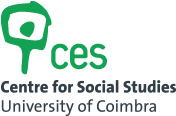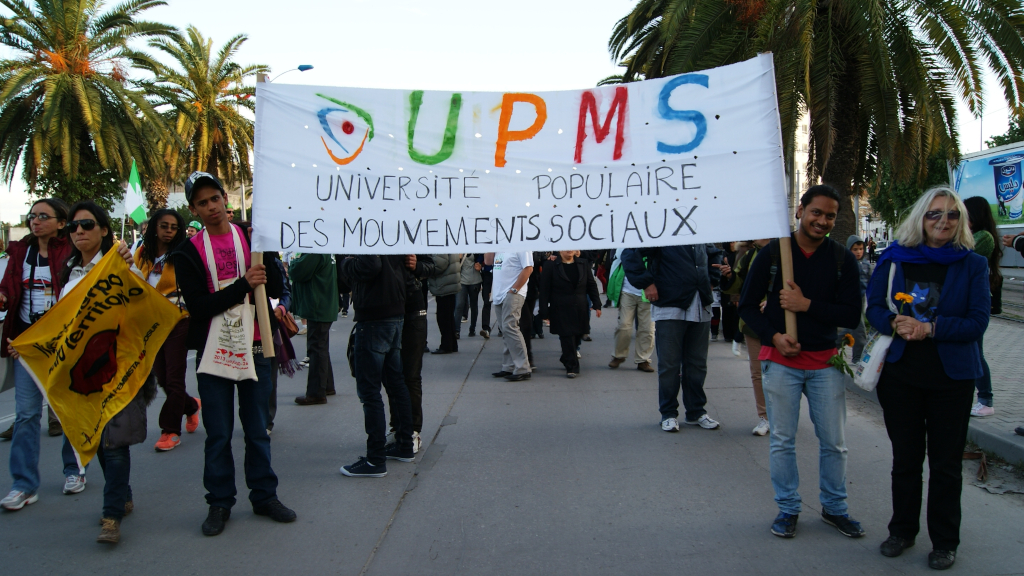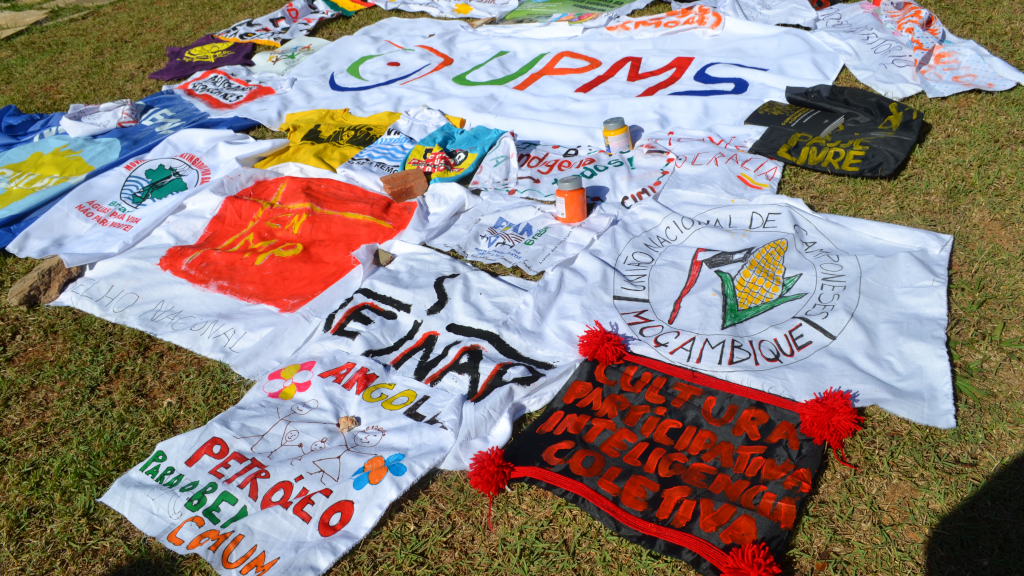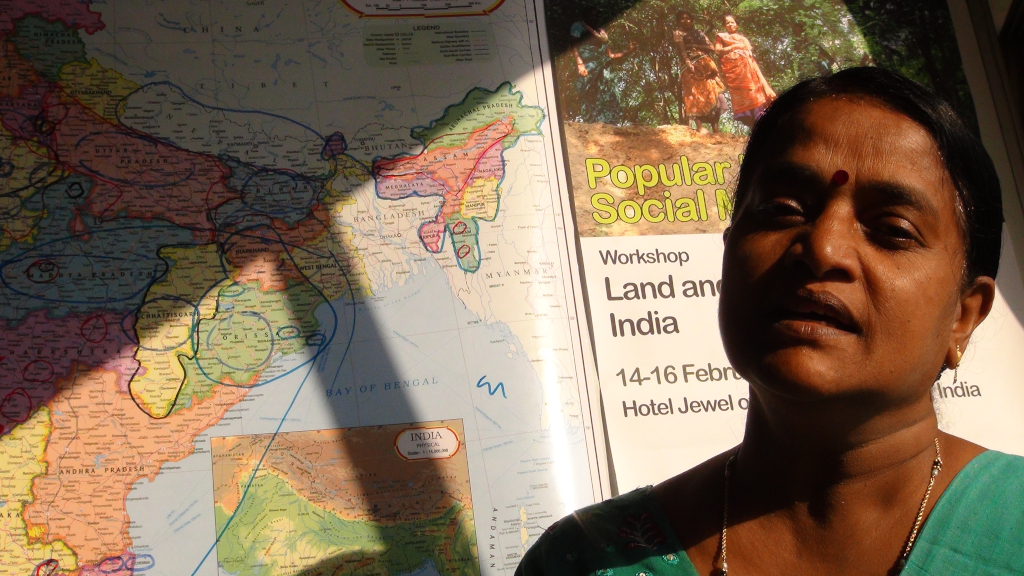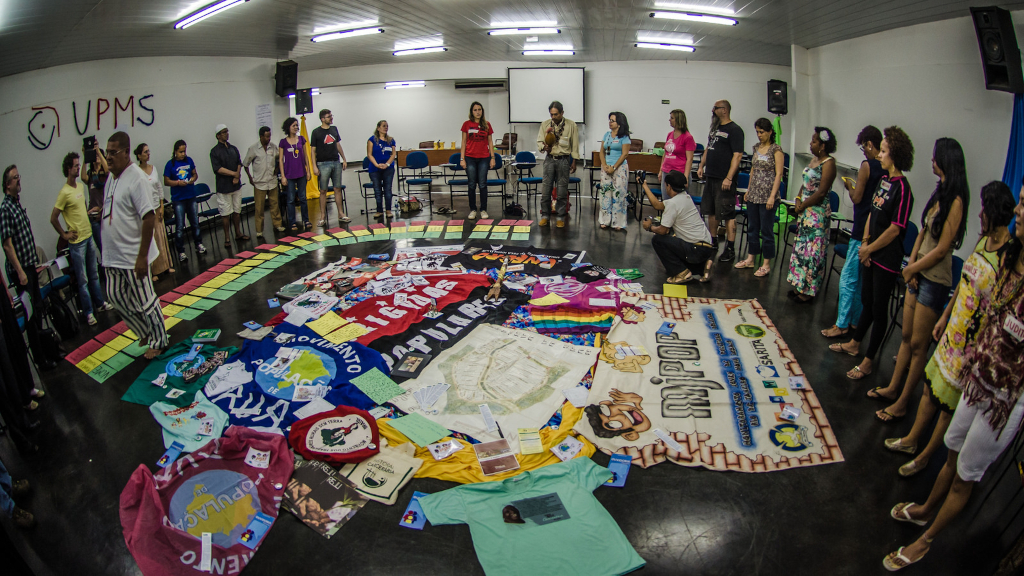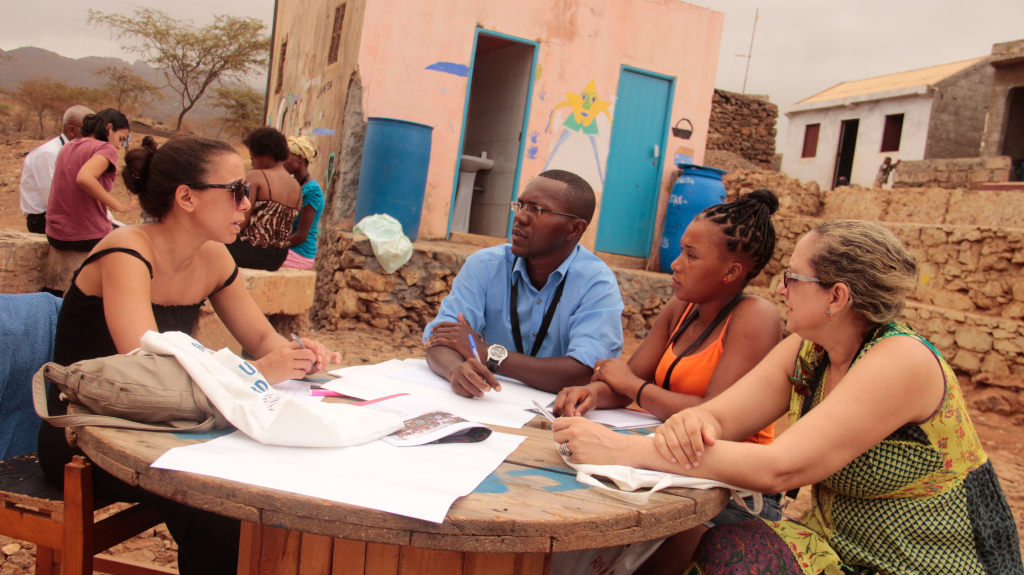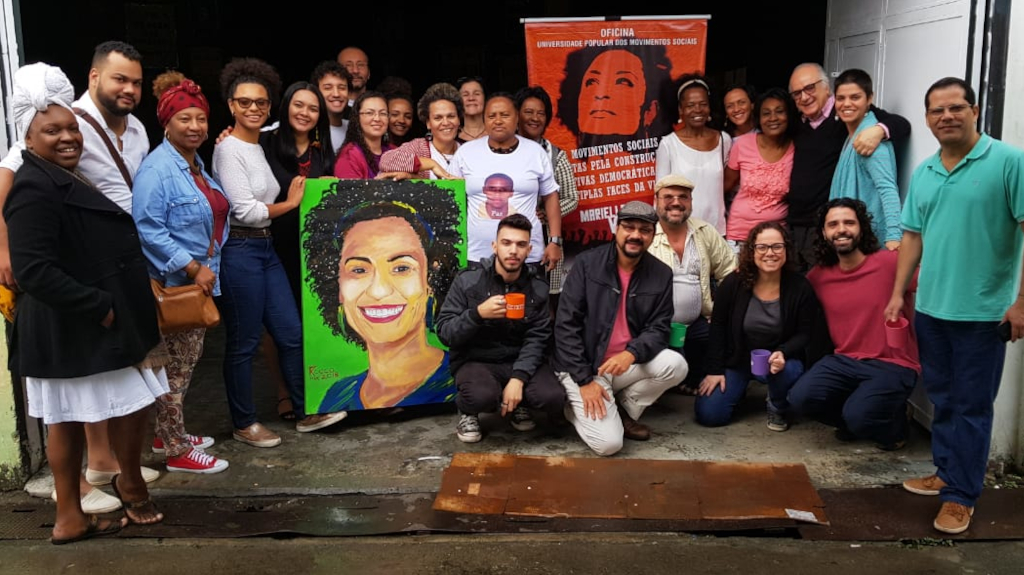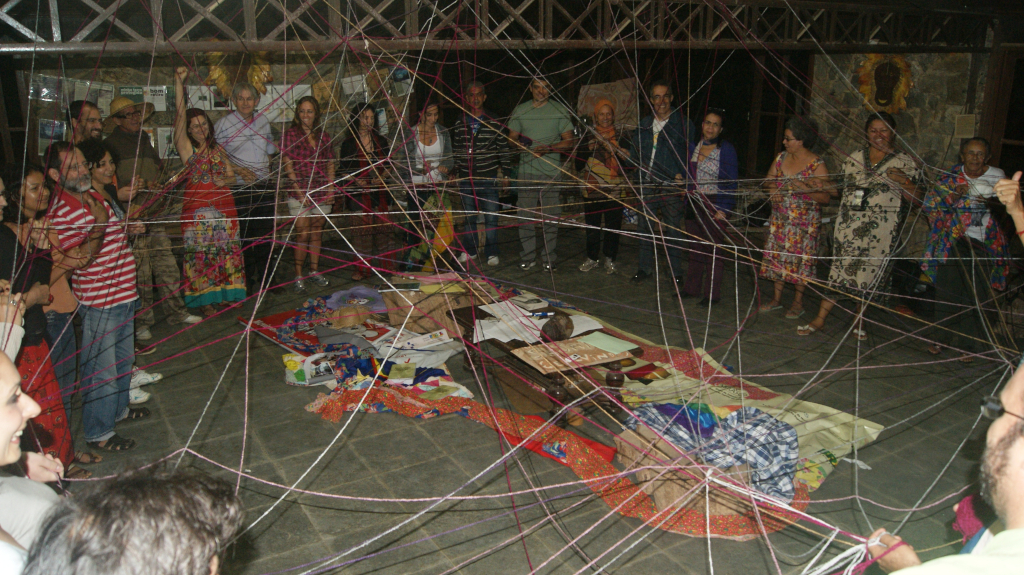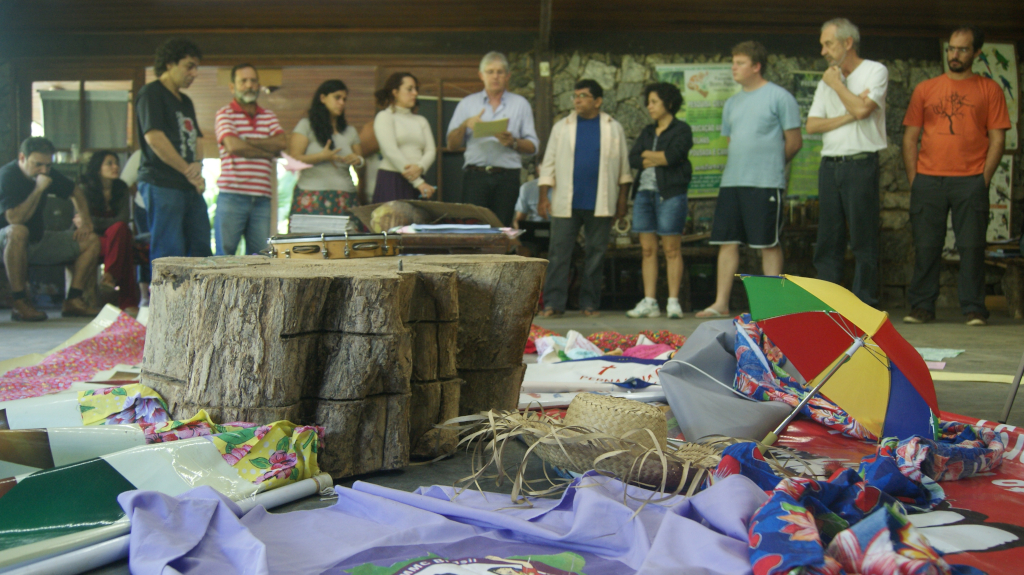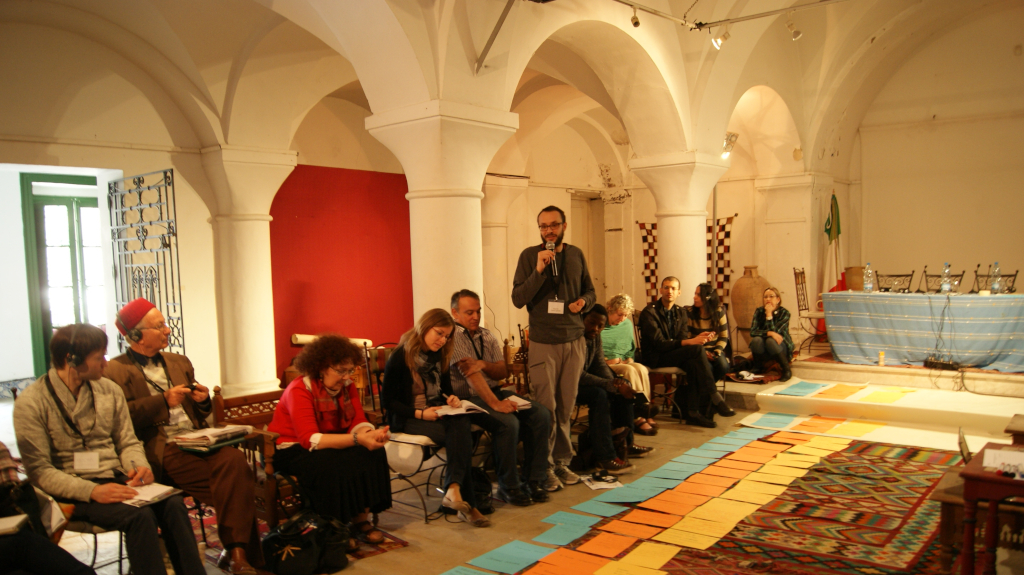Popular University of Social Movements (UPMS)
The Popular University of Social Movements is the result of the initiative and proposal of several social movement organisations, non-governmental organisations, trade unions and intellectuals participating in the 2003 World Social Forum (WSF). Upon the conclusion that it would not be possible to achieve global social justice without global cognitive justice, Boaventura de Sousa Santos presented the proposal of the Popular University of Social Movements (UPMS) with the perspective that, in addition to the WSF meetings, other spaces for dialogue between social movements and civil society organisations should be created to foster sharing of knowledges and the production of collective and intercultural knowledge, in order to generate common agendas and, consequently, transformative practices both for the movements themselves as for the planet.
UPMS has two primary dimensions. On the one hand, it involves the self-education of activists and leaders of social movements and organisations through debates held among themselves and with social scientists/intellectual/artistic, thus deepening the analytical and theoretical framework capable of enabling the enrichment of their social practices and the broadening of alliances established among them. On the other hand, it involves the self-education of social scientists /intellectuals/artists committed to social change through debates held among themselves and with activists and leaders of social movements and organisations, thus completing the process of mutual reciprocity or exchange. The Popular University of Social Movements is an experiment in the ecology of knowledges and operates by holding two-day workshops where activists from different movements, artists and academics/intellectuals come together to debate a topic. The starting point is the recognition of mutual ignorance and the ending point is the shared production of knowledge. In this procedure there are no teachers or students, but self-education of all, bringing together practice and theory, making the former stronger and the latter more relevant, bridging gaps between the participating parties.
The Centre for Social Studies of the University of Coimbra has been an active partner in the creation and development of UPMS since its inception, and has even been, through the project ALICE – Strange Mirrors, Unsuspected Lessons: Leading Europe to a new way of sharing the world experiences (coordinated by Boaventura de Sousa Santos and funded by the European Research Council), proponent of the first UPMS workshop outside Latin America, in February 2012: "UPMS Europe Workshop: Letters to Europeans". The basis of reflection of the workshop were letters written by the participants of the activity addressed to Europe.
UPMS has assumed a growing relevance as a methodology of the Epistemologies of the South and between 2012 and 2016 more than 24 workshops were organised and co-organised by the ALICE/CES project in Latin America, Africa, Asia and Europe. Since its creation, more than 35 UPMS have been held around the world. Currently, UPMS is trying to adapt to the new pandemic reality, testing virtual and hybrid models of participation, discussion and sharing, broadening horizons and enabling transcontinental experiences.
SITE: http://www.universidadepopular.org/
CHARTER OF PRINCIPLES: http://www.universidadepopular.org/site/media/documentos/Charter_of_Principles_UPMS_-_English.pdf
